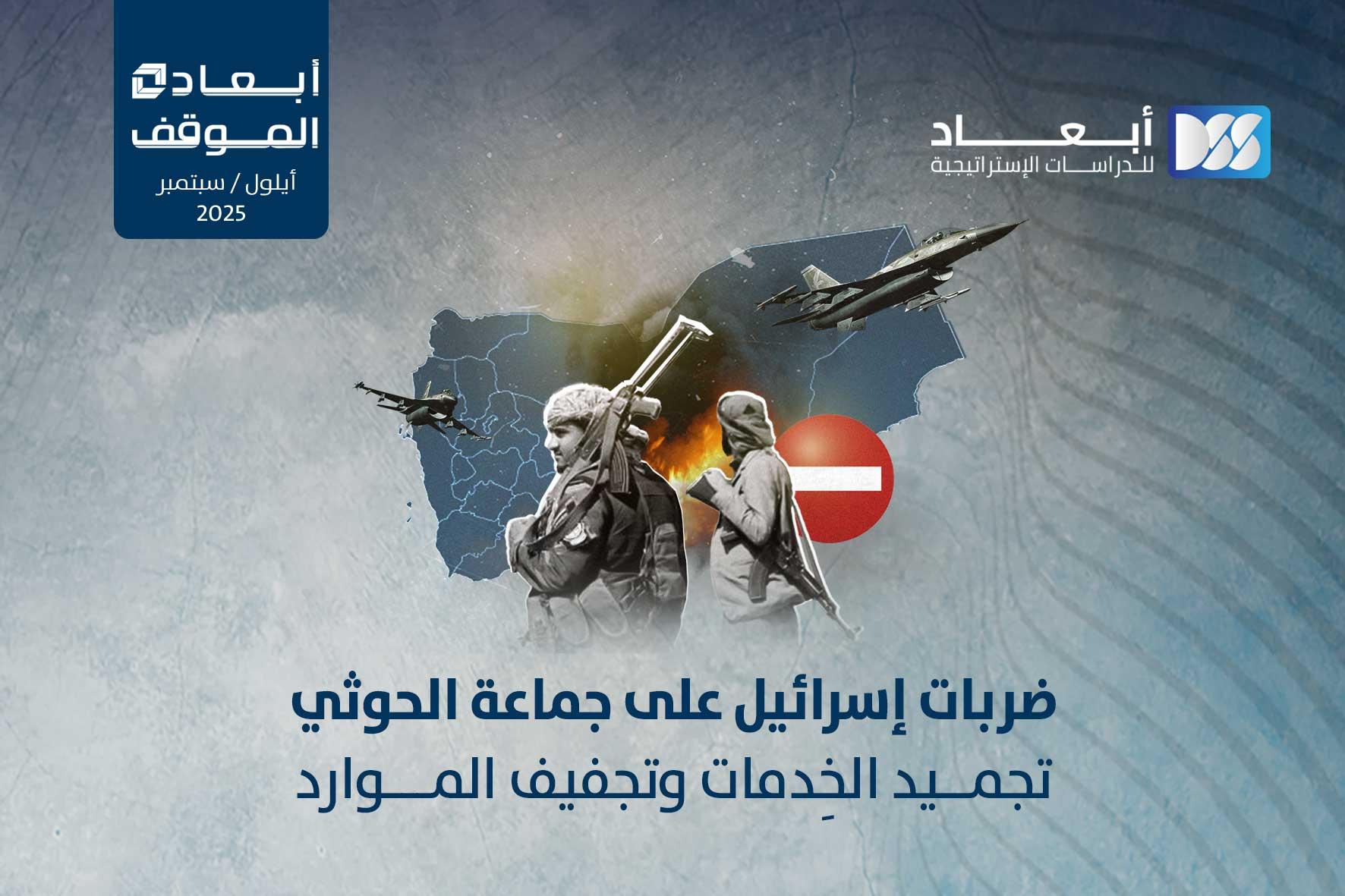During July and August 2024, Israeli aircraft carried out approximately 20 attacks on Houthi sites in Yemen, the largest of which targeted a meeting of the group’s government in Sana’a on August 31, 2025.
The latest attack resulted in the deaths of the Houthi-aligned Prime Minister, Ahmed al-Rahwi, as well as the Minister of Economy and Investment, Moeen al-Mahaqri, the Minister of Electricity, Ali Saif Mohammed Hassan, the Minister of Health, Ali Abdul Karim Shaiban, the Minister of Foreign Affairs, Jamal Amer, and other ministers.
Nearly a week before the attack on the ministerial meeting in Sanaa, Israeli aircraft bombed the oil company’s station in central Sanaa, as well as the Haziz power station in the south, resulting in civilian casualties.
Since mid-2025, Israeli retaliatory raids against the Houthi group have focused on vital facilities such as the port of Hodeidah, fuel storage tanks, and water and power plants. This indicates a deliberate approach aimed at crippling the Houthis’ ability to provide services to the local population, particularly electricity and water, while also depriving the group of financial resources, both from fuel sales and commercial port operations.
It is noteworthy that the scale of Israeli attacks against military leaders has decreased compared to the targeting of public facilities. This may indicate a partial success by the Houthi group and its international backers in securing military and security leaders and preventing a recurrence of a scenario similar to what happened with the Lebanese Hezbollah. However, other factors that are pushing Tel Aviv to avoid assassinating the group’s leaders at this stage cannot be ruled out. These factors include the United States’ lack of support for this option in response to regional demands, as adopting this scenario could completely block the implementation of the peace roadmap for Yemen, which was initially signed under regional sponsorship.
Israel’s current avoidance of targeting the Houthi military and security leadership does not necessarily rule out this option entirely in the future. It is likely that Israel will resort to this option if regional escalation returns, confrontations between Iran and Israel renew, and Iran’s allies in Yemen and Iraq intervene to support it. In that case, it is not unlikely that Washington will agree with Tel Aviv to expand the scope of the strikes to include Houthi leaders or factions within the Iraqi Popular Mobilization Forces.



